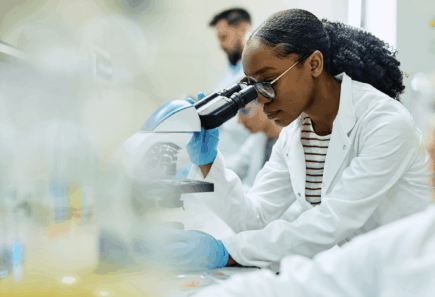
Refine Search Results
Sort By


Give us feedback on our report
We want your input! Use this form to submit feedback, corrections, additional insights, data, and your thoughts on our draft report.

The Business of Alt Protein: Winning public funding
This presentation will equip alternative protein companies with the tools to identify and compete for major public grant funding in the U.S. and Europe.

The Business of Alt Protein: Navigating global regulations for precision fermentation (PF)
Join us for The Business of Alt Protein: Navigating global regulations for precision fermentation (PF) on Wednesday, July 30th, 11 AM-12 PM ET / 5-6 PM CET.

Boosting food supply chain resilience
Using proven biomanufacturing methods like fermentation to produce protein can help ensure a stable food supply during supply chain disruptions.

U.S. loan and guarantee programs for scaling alternative proteins
Discover federal loan and loan guarantee programs that may be used to support alternative protein manufacturing and investment.
NAPIC Inaugural Conference 2025
The NAPIC Inaugural Conference aims to convene a diverse group of stakeholders—including industry leaders, innovators, researchers, investors, and policymakers—to explore and advance the latest developments in alternative protein innovation.

Beyond Meat’s Next Dish Won’t Imitate Beef, Pork, or Chicken
GFI's Jody Kirchner is quoted in Inc.'s piece on Beyond Meat’s new product and overall challenges for the plant-based meat industry
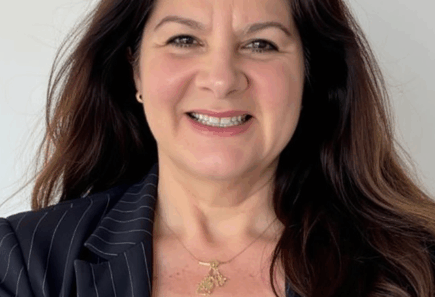
Tina Rodousakis
Tina and her team drive implementation of GFI’s public policy and government relations initiatives through effective coalition building, advocacy content creation, legislative targeting, and stakeholder engagement. Areas of expertise: Nonprofit management, policy analysis, stakeholder engagement, strategic communications, campaign strategy, coalition building
To FDA on labeling of plant-based milk alternatives and voluntary nutrient statements
GFI urges FDA to treat plant-based milks fairly and avoid any labeling scheme that would unfairly burden one class of products in the marketplace.
To HHS and USDA regarding the Scientific Report of the 2025 Dietary Guidelines Advisory Committee
GFI urges the Departments to adopt the Committee’s recommended “Eat Healthy Your Way” dietary pattern in the 2025-2030 DGA, which builds on previous iterations of the DGA by encouraging people to consume more plant-based proteins while allowing for greater flexibility to meet the needs of American families.

California state programs
These California state grants, loan programs, and tax credits are likely relevant to the alternative protein industry. Companies should assess their eligibility for programs of interest.
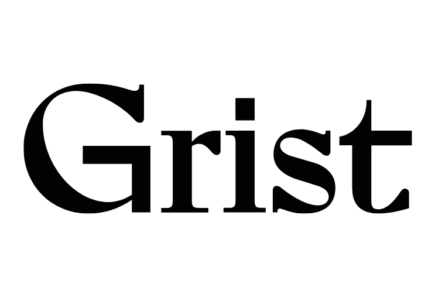
Want to try lab-grown salmon? The US just approved it.
GFI's Maddie Cohen was included in Grist's piece about WildType's FDA approval and the climate benefits of cultivated seafood

The Science of Alt Protein: Cell cultures with seafood relevant marine species
Join us to explore research in cell culture techniques for two marine species relevant to the development of cultivated seafood.
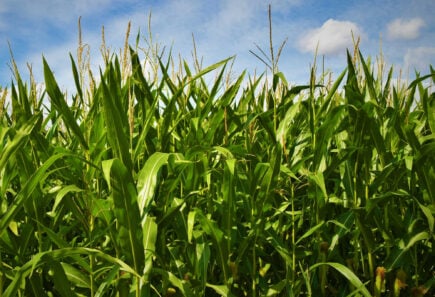
Deep dive: Fermentation metabolism and feedstocks
Explore how microbial metabolism converts feedstock to protein.
FAO Global Agrifood Biotechnologies Conference
GFI president and founder Bruce Friedrich will speak at the FAO Global Agrifood Biotechnologies Conference on how biotechnological innovations such as gene editing, synthetic biology, and precision fermentation can reshape the future of food. Join in person or tune in online to hear Bruce’s insights on building a more resilient, inclusive, and sustainable agrifood system.

Gift acceptance policy
Our gift acceptance policy outlines our commitment to ethical, transparent, and mission-aligned philanthropy.
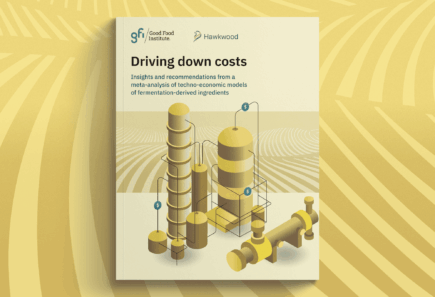
Techno-economic insights on fermentation ingredients
This report analyzes the competitiveness and key cost drivers of fermentation-derived ingredients, and identifies critical data gaps.

Illinois state programs
These Illinois state grants, loan programs, and tax credits may be accessible to the alternative protein industry.

Eleni “Ellie” Kardaras
Eleni "Ellie" Kardaras is responsible for analysis of retail and foodservice market data to identify actionable insights to support GFI's work and educate the alternative protein industry. Areas of expertise: consumer insights, food innovation, market analytics, food science

California: Sustainable protein innovation
Explore our fact sheet to learn about the state of sustainable protein production in California, including recent industry and research developments.
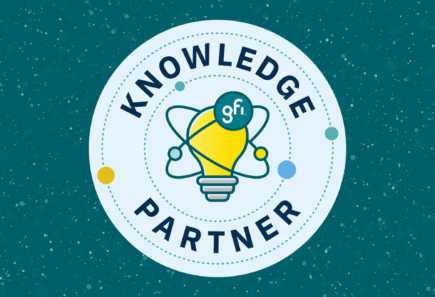
Foods of the Future: Science and Engineering Approaches (Gordon Research Conference)
The focus of this conference is to bring the multi-disciplinary future food community under one roof with a singular focus: collaboratively advancing the science and engineering of safe and scalable production systems for sustainable agriculture.

Fish & CHIPS: Collaborative Huddle for Ideation & Problem Solving session two
Calling all cultivated seafood researchers and innovators! Join us for our next collaborative huddle on July 8th at 10:30 pm ET.

Fish & CHIPS: Collaborative Huddle for Ideation & Problem Solving session one
Calling all cultivated seafood researchers and innovators! Join us for our next collaborative huddle on July 8th at 11:30 am ET.

Insights and opportunities in whole-cut meat alternatives
Dive into a category overview and insights for plant-based and fermentation-enabled steaks, filets, chicken breasts, and other whole-cut products.

Policy brief: CDMOs for Food and Agriculture Biotechnology Development
CDMOs in biotechnology for food production create jobs, boost the bioeconomy, and provide outsized support to American farmers, innovators, and consumers.
Plant-Based Revolution! Climate Action Party
Join GFI's Shayna Fertig, Senior Advisor to the President, and trailblazers from across the alternative protein ecosystem for a lively discussion on what comes next and how smarter food choices today can unlock big wins for our planet, our health, and our economy.

Retail point-of-purchase motivators for plant-based foods
Explore tactics to increase consumers’ purchase intent for plant-based products at retail, optimal category descriptors for plant-based food, and more.
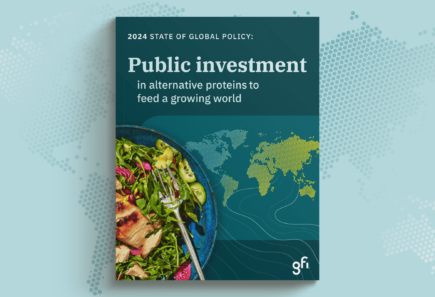
2024 State of Global Policy webinar
Join our experts for a live webinar covering the state of global policy on alternative proteins, and learn why countries around the world are prioritizing protein diversification.
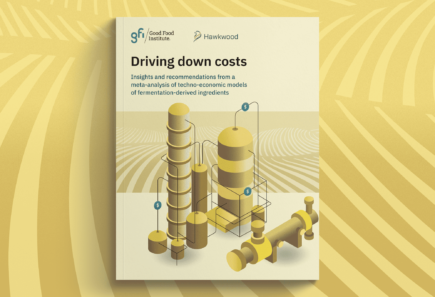
Driving down costs for fermentation ingredients: Recommendations from techno-economic data
Join us for a webinar unpacking the cost competitiveness of fermentation-derived ingredients and how to reduce production costs based on insights from a new report!

Foodservice communication guide
Explore how to effectively engage chefs and foodservice operators to get alternative proteins on menus.

Consumer insights
Understand alternative protein consumer segments, demographics, adoption, motivations, and perceptions.

Home
The Good Food Institute is a 501(c)(3) nonprofit think tank working to make the global food system better for the planet, people, and animals.

Tim Carey, J.D.
Tim Carey advances GFI's legislative, and regulatory strategies by operating at the intersection of public health research, law, and policy. Areas of expertise: Regulatory and legislative drafting, stakeholder engagement and education, public health policy strategy and advocacy, and constitutional law.

State of the Industry: Brazil
Get the latest insights on Brazilian consumer behavior, the role of animal meat in consumers' diet, and how plant-based meats are perceived in the context of everyday food.

Dante Toppo
Dante and his team lead GFI’s strategy for policy innovations that unlock opportunities for alternative proteins in the U.S. and around the world. Areas of expertise: Policy advocacy and strategy; Diplomacy; Coalition-building
Breaking the Divide: Depolarizing Food, Farming, and Innovation
Join GFI’s Elliot Swartz and other experts for an online discussion on how we can depolarize conversations around food, farming, and innovation. Learn how cultivated meat and other solutions can complement traditional approaches to create a more sustainable, inclusive food system.
